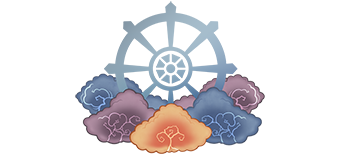Article: The Unseen Teacher
Article: The Unseen Teacher
By Isa Gucciardi, Ph.D.
Teaching and learning have never been separate for me. As a learner, I have always been keenly aware of the fact that I am being taught from within as I try to master a skill. I can feel the internal teaching change me in a different way than the external learning changes me. I remember being taught how to sight read as I was learning to play the piano. My piano teacher taught me the concept of matching the notes on the page with the notes on the keyboard, but when I read the notes on the page, I could feel an unseen teacher aligning me with the music. I was being taught how to play the piano, but I was also learning a new alignment to the world.
The experience of participating in learning in the external educational environment and receiving teaching from within simultaneously is a phenomenon that has revealed itself to me in different ways bit by bit over time. This experience has many facets to it, but it is always present in every teaching situation regardless of the subject being taught or whether or not I am ‘officially’ the teacher or the student.
There is always something more to teaching than just imparting knowledge. I love the challenge of trying to understand how the student learns so I can learn how to best teach them. I have found that I don’t have to be perfectly skilled at the process I am teaching in order to be able to help someone in a significant way. But I do have to be skilled and attentive to the learning process itself which is never separate from the teaching process. I call this ineffable connection between the two ‘the unseen teacher.’
As a teacher, I have always been aware of that unseen force present in any teaching situation. It is always aligning me with the unseen teacher within the student even when the student is unaware of it. This alignment shows me how the student learns and helps me understand how to teach them. In the teaching process, I am imparting information, but in order for the student to learn most effectively, I need to be aware of the nature of their connection with the unseen teacher that resides within them.
It seems that the ‘unseen teacher’ functions in two ways. First, it helps me integrate knowledge that someone else is sharing with me. And second, it helps me perceive how a particular student I might be teaching best learns. It teaches me about the student in the same way it teaches me where I need to align in order to learn completely and effectively in my own learning. As I am imparting information on one level, that unseen force shows me what the student needs to learn in order to be able to align with their own experience of the unseen teacher on another level. I would not be able to teach in the way that I teach if I did not learn in the way that I learn. The common denominator in each situation is the unseen teacher.
I have to learn how to align with this force not only to be able to learn effectively, but to be able to teach effectively. I have come to understand that learning this alignment is key to being able to be useful as a teacher of any subject. I have become aware of how absolutely crucial it is to remain a student of the unseen teacher in learning, practicing, and teaching the healing arts.
In trying to understand what people need to learn about themselves in order to heal, I have to align with the unseen teacher which exists within me and within the student and which permeates the learning environment. Once I connect with this unseen force on all these levels, I do my best to understand its priorities and follow its instructions so I can help someone find the path to their own healing. I am teaching in this process, but first and foremost, I am learning.
When I first started practicing the healing arts, I quickly saw how important it was to help people learn how they might be creating their problems. I also saw how important the connection to the unseen teacher is to that learning. It is crucial for people to learn how they have arrived at a problem. If people cannot learn how they are creating their situation, they cannot receive the teaching that can help them change.
With each person I sit down with, I have to learn what they need to learn not only about how they might be creating their suffering, but what they need to learn in order to be able to receive input that can allow them to change. As they open to their inner experience, they can learn about how they contribute to their problems. As they learn about how they create their issues through the healing process, I have to learn where and how they can best align to the unseen teacher within them to help facilitate change.
One of the most important learnings to come out of this effort is that while almost everyone has the potential to develop an understanding of the inner unseen teacher, not everyone has ready access to that potential. As I began participating more deeply in others’ learning processes, I began to realize learning had always been relatively easy for me, simply because I had such a strong connection to the unseen teacher. I did not really understand the import of this easy connection until I began to teach others in earnest and realized that most people don’t recognize or know how to listen to this teaching force within them. I also realized the reason so many people need therapeutic help is because this force is obscured within them in some way. When people strengthen their relationship to the inner unseen teacher, they can learn better, they can heal more thoroughly, and they can develop more holistically.
As this realization dawned on me, I set about developing ways to help people learn about this inner teaching force within them. With this connection, people can become aware of the more subtle alignment they need to understand in order to change as they strive to learn about their issue in the external learning environment of the clinical setting. In trying to point to the need to develop a relationship with this force, I settled on communicating about it as ‘inner guidance.’
The unseen teacher is a particular type of inner guidance, however. It is a force that helps people learn internally as they are being taught by an external teacher. It helps the student learn on a more subtle level as they are being taught information that can be applied at any level. Being able to recognize the inner unseen teacher and learn how to align with it on the more subtle level of experience is important when it comes to healing. You can heal more deeply when you are attuned to the inner unseen teacher. The unseen teacher can teach how to align with the healing force and help people learn how they have strayed away from it.
I soon realized how important it was to connect people with this inner guidance, this unseen teacher, and began to develop different methods to help people do this. In some cases, I may work with a guided meditation. In others, we may work with a form of Buddhist meditation or the shamanic journey to connect with inner guidance. Still others may need to work with suggestion hypnosis to make this connection. In all cases, the process of connecting with the unseen teacher, which is referred to as inner guidance, is done in a state of non-ordinary awareness.
Whether the connection to inner guidance is easy or difficult, it is always a privilege to help someone illuminate this teaching force within them so they can better learn about themselves and their situation.
This is a highly dynamic and creative relationship. Learning is never rote, and teaching is never boring.
At university, I remember hearing one of the administrators disparage one of my teachers by saying, “Well, you know, those that can do, and those who can’t, teach.” I could not wrap my head around the insult. I have always felt it is a gift to be able to teach someone something of value. I have never felt teaching to be a default because I have nothing better to do.
But as I have gained more experience, I do see that there are many teachers who do not engage in this exciting, creative endeavor as the student they actually are. Too many teachers just want to appear to know more than anyone else. They pass on information as a way of pointing to how much they know, not from the position of understanding how much they have to learn from the process of teaching. This method of education can be deadening rather than enlivening, and the possibilities for deeper discovery become more limited. It robs the student of the gift of learning about their deeper capacities that every learning environment has the potential to provide. The teacher loses the opportunity to deepen their learning about a craft that has no equal.
Both learning and healing are processes of self-development. They both require a good teacher to encourage and enliven the unfolding of understanding and knowledge. When the teaching environment is deprived of resources when teachers are not engaged in learning, there is a loss for both teacher and student. This is an unfortunate situation.
However, when the healing environment suffers from this same type of loss, the implications can be more dire. When the healing environment is deprived of resources because the healer or teacher does not understand the role of the unseen teacher and the learning it can provide in the healing process, people can continue to suffer unnecessarily. By recognizing the role of the unseen teacher in helping people evolve and develop, the possibilities of learning and healing can expand exponentially. Teaching becomes an art whose mysteries reveal themselves infinitely.

